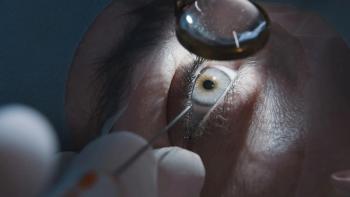
This week in optometry: January 1-January 5
A look back on what's happened in optometry during the week of Jan. 1-Jan. 5, 2023.
Check out what Optometry Times®' shared this week:
Optometry news
Long-term metformin use not associated with AMD risk
By Lynda Charters
A multicenter US study1 revealed that the long-term use of metformin to treat diabetes and lifestyle changes in patients with diabetes were not associated with the risk of age-related macular degeneration (AMD), reported Amitha Domalpally, MD, PhD, from the Wisconsin Reading Center, Department of Ophthalmology, University of Wisconsin School of Medicine and Public and Health, Madison.
No treatment is currently available for the early stages of AMD, but some retrospective studies2-4 have reported an association between metformin and reduced risk of AMD, the authors explained.
In this follow-up study of the Diabetes Prevention Program,5 the Diabetes Prevention Program Outcomes Study (DPPOS), retinal photographs of 1,592 patients with diabetes were evaluated 16 years after a randomized clinical trial that investigated diabetes prevention. The study included 549 patients treated with metformin, 514 undergoing lifestyle intervention to prevent diabetes, and 512 control patients in the placebo arm.
The main outcome measure was the prevalence of AMD in the treatment arms.
A funny thing happened at the office: Part 1
By Chris Wroten, OD
Who doesn’t love a funny anecdote or peculiar tale? We all have our strange stories from the exam room, but here are a couple of mine (and what I learned from them).
Chris Wroten, OD, shares his lessons learned from "The Shady Lady, aka Patient Skicky Fingers" and "The Bad-Mouther" in this part 1 of his series.
Vision care includes dry eye care
By Jerry Robben, OD
As an optometrist in a progressive surgical practice, I know that dry eye disease (DED) is a major reason for dissatisfaction after cataract and/or refractive surgery. A poor-quality tear film can undermine success in every other aspect of surgery—the surgeon’s skill, the advanced intraocular lens technology, and all the effort we put into the patient experience.
But DED management is not just for surgical patients. In optometry school, we all learned that the tear film is responsible for 60% to 70% of the focusing power of the eye. If we want our patients to see well, to refract consistently, or to be successful in contact lenses, they need to have a healthy tear film. Any eye doctor who cares about vision should have a low threshold for recognizing and treating dry eye.
Patients stick with us, for better or for worse
By Benjamin P. Casella, OD, FAAO
We all have those patients who stick out among others. When I check the patient schedule each morning, I look for familiar names. Either I know the patient personally outside of my clinical life, or they were remarkable in this clinic for some reason, positive or negative. With that said, one patient’s name sticks out to me every time he’s on the schedule.
The patient is a White male in his 70s whom I see periodically for suspected glaucoma. His intraocular pressure (IOP) readings have always been normal, and I suspect he has glaucoma based on the appearance of his optic nerves. An uncle on his paternal side had glaucoma but reportedly did not have any overt visual sequelae.
Every time we meet for an eye examination, he follows his salutations with the same statement: “…and remember, I smoke a cigar and drink Scotch every afternoon. So, you’re just going to have to work around that.” I laugh every time, and not out of pity for someone’s bad joke. I laugh because he means it not only to be funny but to be truthful. I always follow up with my usual spiel about how alcohol and tobacco slowly poison the body. He says something along the lines of “yeah, I know, I know.”
Managing low vision in an aging population
By Parres Wright, OD, FAAO
All optometrists take the “Optometric Oath,” which is as follows1:
With full deliberation, I freely and solemnly pledge that:
I AFFIRM that the health of my patient will be my first consideration.
I WILL practice the art and science of optometry faithfully and conscientiously, and to the fullest scope of my competence.
I WILL uphold and honorably promote by example and action the highest standards, ethics, and ideals of my chosen profession and the honor of the degree, Doctor of Optometry, which has been granted to me.
I WILL provide professional care for the diverse populations who seek my services, with concern, with compassion, and with due regard for their human rights and dignity.
I WILL work to expand access to quality care and improve health equity for all communities.
I WILL place the treatment of those who seek my care above personal gain and strive to see that none shall lack for proper care.
I WILL hold as privileged and inviolable all information entrusted to me in confidence by my patients.
I WILL advise my patients fully and honestly of all which may serve to restore, maintain, or enhance their vision and general health.
I WILL strive continuously to broaden my knowledge and skills so that my patients may benefit from all new and efficacious means to enhance the care of human vision.
I WILL share information cordially and unselfishly with my fellow doctors of optometry and other professionals for the benefit of patients and the advancement of human knowledge and welfare.
I WILL do my utmost to serve my community, my country, and humankind as a citizen as well as a doctor of optometry.
I HEREBY commit myself to be steadfast in the performance of this my solemn oath and obligation.
This oath specifically charges each optometrist to “advise my patients fully and honestly of all which may serve to restore, maintain, or enhance their vision and general health and to strive continuously to broaden my knowledge and skills so that my patients may benefit from all new and efficacious means to enhance the care of human vision.”1
Newsletter
Want more insights like this? Subscribe to Optometry Times and get clinical pearls and practice tips delivered straight to your inbox.













































